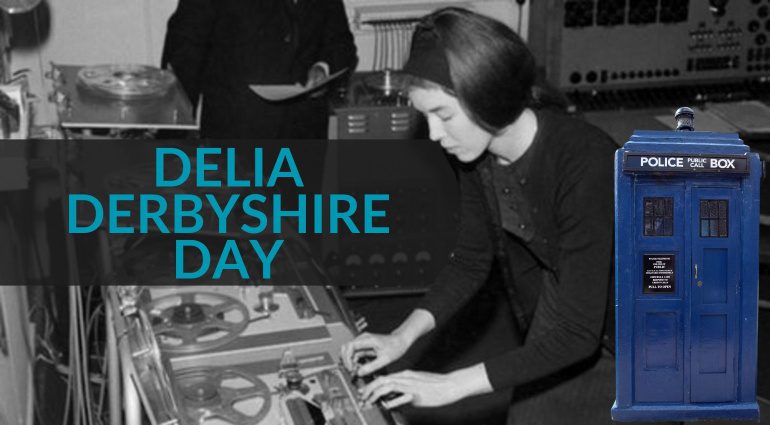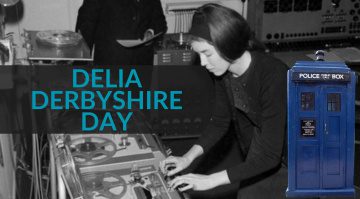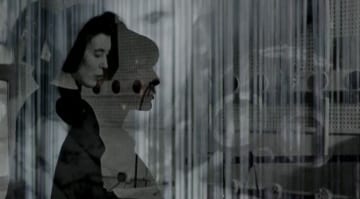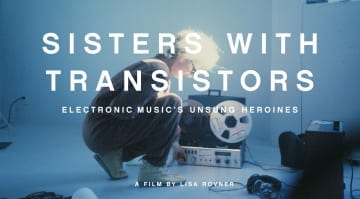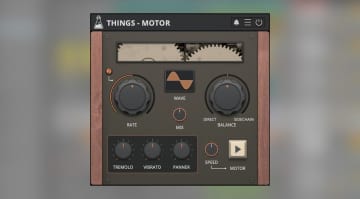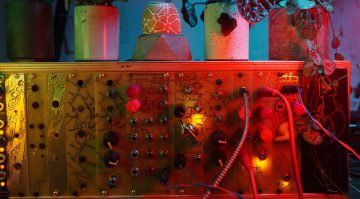Delia Derbyshire Day: Dr Who and The Radiophonic Workshop
November 23rd marks Delia Derbyshire Day, a day which honours the female pioneer of electronic music. As a key member of the BBC Radiophonic Workshop, she created pioneering works such as the Dr Who theme tune. We talk to fellow Radiophonic Workshop member Dick Mills and analyse Delia’s legacy.
Delia Derbyshire Day
Like many children growing up in the UK the BBC and its flagship science fiction show, Dr Who, was a huge part of my childhood. The other-worldly ethereal theme tune was many people’s first exposure to electronic and experimental music. Behind that theme, and the sound effects and title themes of many BBC productions, was the Radiophonic Workshop.
November 23rd marks Delia Derbyshire Day, a day dedicated to one of the Radiophonic Workshop’s most iconic figures. Working alongside other Radiophonic Workshop luminaries such as Brian Hodgson and Dick Mills, Delia was responsible for some truly pioneering works of electronic music. It’s not far-fetched to consider her as a British contemporary to artists such as Karlheinz Stockhausen, for example.
2023 also marks the 60th Anniversary of Dr Who, a show indelibly linked with the Radiophonic Workshop and its title theme tune written by Ron Grainer and “realised” by Delia Derbyshire. It therefore seems like a perfect time to examine the impact of Delia Derbyshire and the Radiophonic Workshop.
Delia and The Radiophonic Workshop
In those pioneering days of electronic music, Delia’s compositions were created largely through tape editing and the repurposing of electronic test equipment. Techniques, which once again are enjoying something of a resurgence by experimental artists such as Hainbach. The Radiophonic Workshop continued to evolve and embrace emerging technologies until finally, it closed its doors in 1998.
However, in recent years, original members of The Radiophonic Workshop including Paddy Kingsland, Roger Limb and Peter Howell have reformed, headed by archivist and original member, Mark Ayres. The Radiophonic Workshop performs live arrangements of Radiophonic Workshop themes, as well as writing and recording new compositions.
It’s been my personal privilege to work with the latest incarnation of The Radiophonic Workshop as a live technician. In honour of this year’s Delia Derbyshire Day, I reached out to one of Delia’s original colleagues, Dick Mills. We discussed Delia’s impact and legacy as well as Dick’s personal memories of Delia and his thoughts on Delia as a person.
Working with Delia Derbyshire
Gearnews: Hi Dick! Welcome to Gearnews! Can you explain how the Radiophonic Workshop came about?
Dick Mills: Up to the 1950s, whilst the composition of ‘Music Concrete’ was fairly well understood by the public it had not become a part of the standard broadcast format to any extent. To put it in simple terms, radio drama studios were often remote from any recording channels, with subsequent editing and reproduction (actual transmission) taking place in even other areas.
The turnabout came with the introduction of portable tape recorders being used in the drama studio primarily for rehearsal purposes. Creative use of these recorders included mix-downs of sound effects sequences as well as ‘accidental feedback’ treatments of voices along the way.
This led to drama authors becoming more adventurous, imagining in-head voices or thoughts, wilder scenarios and so on, all encouraging extra creativity by the drama studio staff – who probably progressively borrowed extra tape recorders from other studios in the process!
Eventually, it was deemed necessary to provide separate studio space for such experimental facilities – the mind boggles at the prospect of an unknown art form being born on the 1st of April in a studio called Room 13!

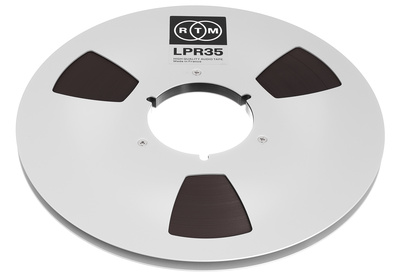
Dick Mills and The Radiophonic Workshop
GN: What was your role in the BBC Radiophonic Workshop?
DM:The broadcast studio depends as much on engineering support as it does on creativity. I joined the BBC as a recording engineer from being a wireless Mechanic in my period of National Service with the Royal Air Force.
My duties at the Radiophonic Workshop was to provide engineering support for the creative Studio Managers, making sure all the technical equipment was ready (and able) to meet their demands.
Initially, all commissions undertaken were served by a two-person team consisting of a Studio Manager and an Engineer. Later, partnerships were separated and ‘Radiophonic Assistants’ or ‘Composers’ worked alone in their own dedicated studios.
You are currently viewing a placeholder content from YouTube. To access the actual content, click the button below. Please note that doing so will share data with third-party providers.
Working with Delia Derbyshire
GN: What are your memories of Delia and working with her at the Radiophonic workshop?
DM: Delia was a creatively gifted person able to imagine various diverse ‘musical’ tastes. She was very adept at spotting rhythms in speech yet could equally hear possibilities in obscure sound sources in unlikely objects, such as enamel lampshades! As such, she would, using today’s parlance, have been regarded as a trendsetter or even an influencer.
A real eye-opener to those who worked with her was her almost complete disinterest in the eventual finished product. It was as if she devoted all her energies into the anticipation of, the physical effort and the actual construction (mental as well as audible) of her creation. She really never needed a playback of the final item to confirm her belief in her compositions.
Delia’s Legacy
GN: Do you think it was difficult being a woman in what was predominantly a “man’s world” in that era?
DM: It is a fact that Delia, a qualified mathematician at degree level, once applied to Decca (a recording company) for employment, only to be told that ladies were not ever considered for that area of employment.
GN: Why do you think Delia turned her back on music?
DM: Like many well-established people, happy at their present level in their chosen fields, Delia (along with others at the Workshop) found the transition from “old analogue technology” to “new digital” difficult despite being quite involved in the introduction of synthesisers into the Workshop’s equipment list.

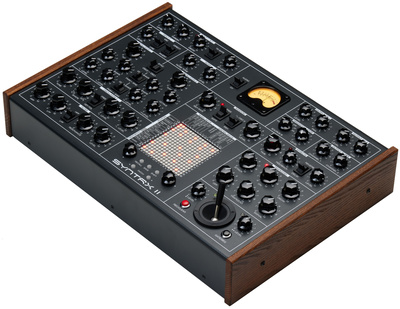
Legacy of the Radiophonic Workshop
GN: What do you think is the reason the RWS holds such an enduring appeal all these decades on? Can you see the Radiophonic Workshop continuing indefinitely?
DM: Nostalgia plays a large part in the continuing appreciation of the Radiophonic art form, particularly encouraged by popular TV/radio series to which family life has been exposed. This is probably the reason for the success of the Radiophonic Band (formed from ex-member staff) with its hard-to-pin-down genre such is the wide diversity of items featured in its repertoire, appealing to all ages…
The real legacy of the Workshop and its output is that it introduced a new art form to the listening world. To those that argue that Music Concrete had got there first, it should be pointed out that it wasn’t to the same deadlines to which we had to conform!
Learning More
If you feel you’d like to explore more about Delia Derbyshire and the Radiophonic Workshop, then there are some excellent resources out there. If you visit the website, Delia Derbyshire Day, you’ll find a load of information and many links regarding Delia and her life.
Equally, head over to Facebook and follow The Radiophonic Workshop for news on releases and upcoming shows.
A superb short documentary entitled “The Delian Mode” was released in 2009, about Delia and her life. I’ve linked it in at the bottom of this article; it’s well worth a watch.
By far the best way of enjoying the work of Delia Derbyshire and the Radiophonic Workshop, however, is to watch and enjoy classic BBC TV Dramas. The entire Dr Who back catalogue is now available for you to watch on the BBC’s Player.
You are currently viewing a placeholder content from YouTube. To access the actual content, click the button below. Please note that doing so will share data with third-party providers.
You are currently viewing a placeholder content from YouTube. To access the actual content, click the button below. Please note that doing so will share data with third-party providers.

 4,5 / 5,0 |
4,5 / 5,0 | 